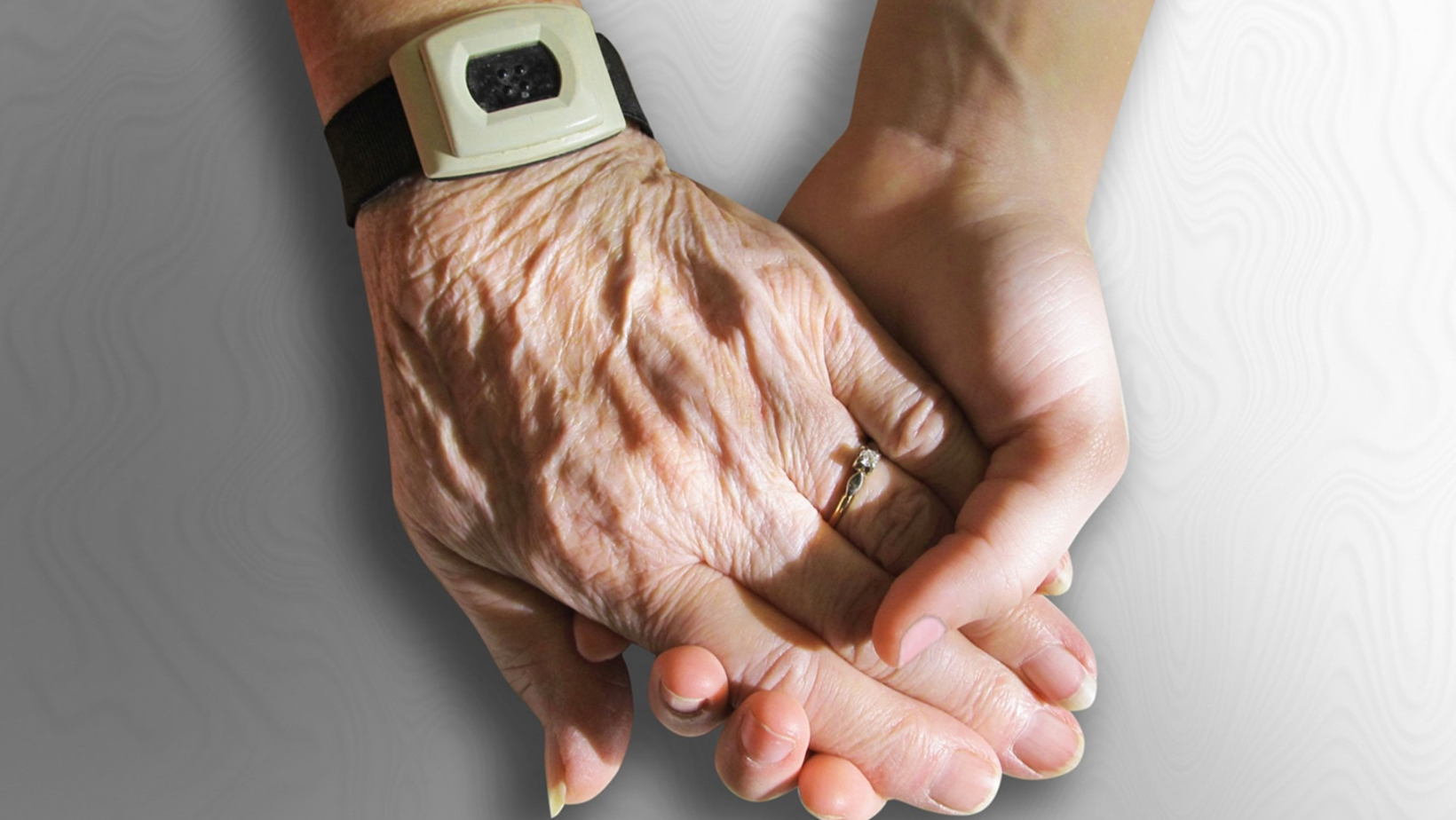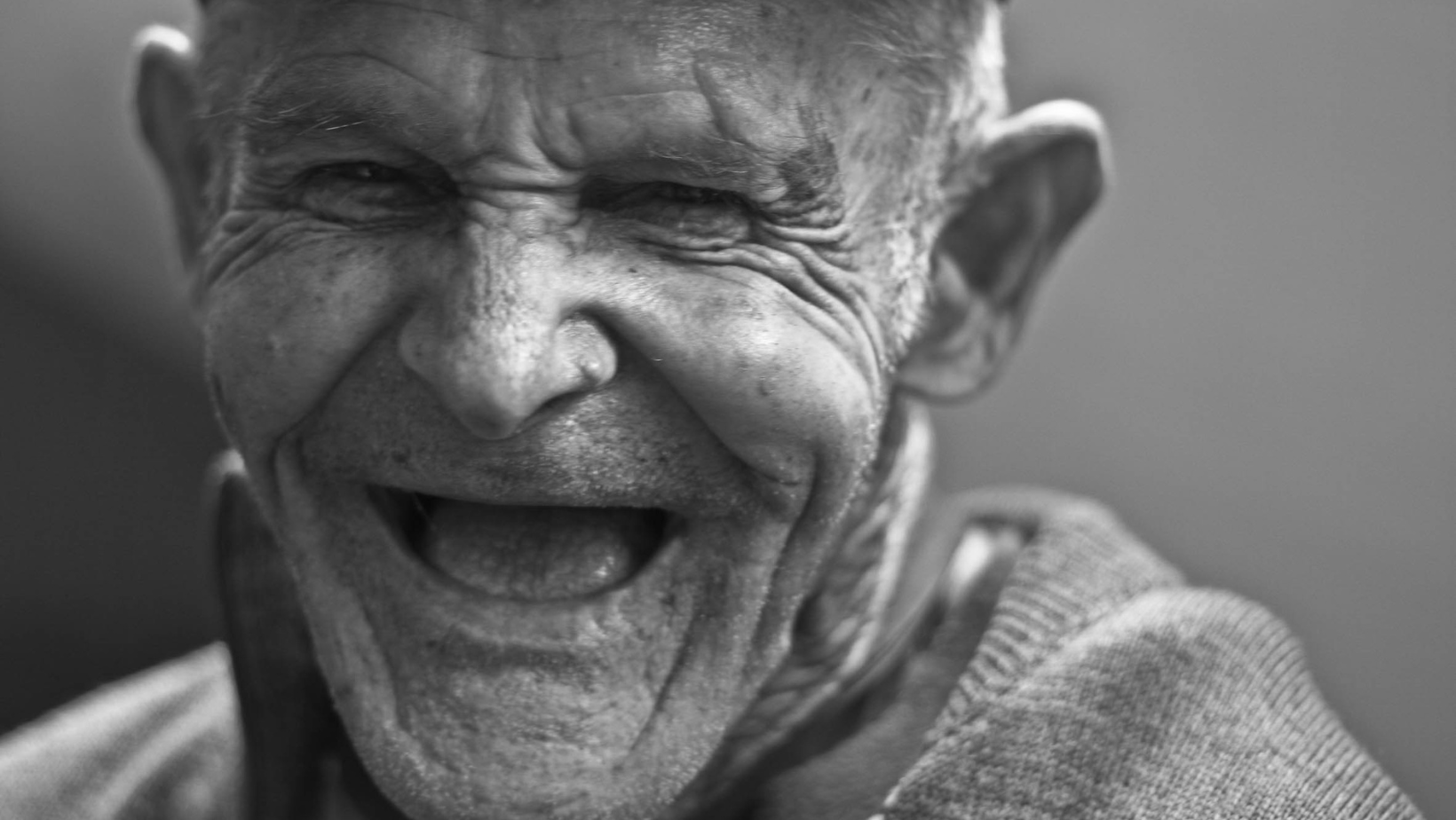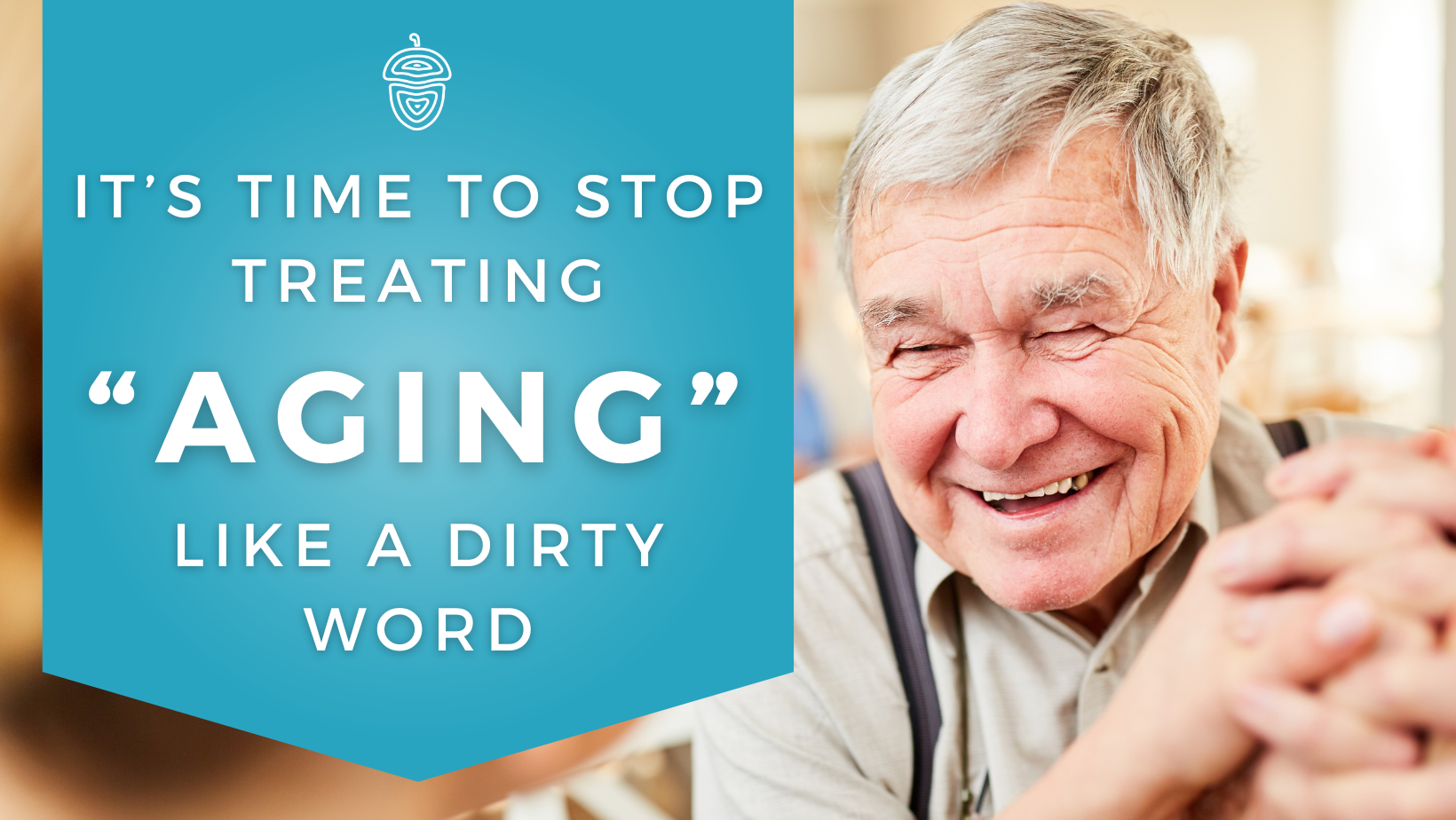Last year, Oakwood Creative Care’s COO, Tara Krantzman, brought our mission to enhance the quality of life for seniors with cognitive challenges to a national scale. As a fellow with LeadingAge Academy, Tara utilized her platform to amplify the voices of our community and advocate for inclusivity to overcome the fear and stigma associated with dementia. In the year since Tara’s travels to some of the country’s leading care centers and over her almost 12 years in the industry, one thing has become alarmingly clear: ageism is still very much responsible for building barriers within our community.
Aging… It’s Not A Dirty Word, But Society Treats It Like One

When you think of growing older, what are some of the first thoughts that come to your mind?
Graying hair and frail bodies?
Wrinkles and sun spots?
A fading memory and loss of independence?
If so, you wouldn’t be the only one to turn down this too-common road of thinking…
Now, the real question is, “aging” isn’t a dirty word, so why are we still treating it like it is? Our bodies and minds change as time rolls on, but when did we start viewing wrinkles by the eyes as nasty crow’s feet versus physical evidence that we have spent so many precious days laughing and smiling? When did gray and white hair become something to be covered with dye versus proof that a person has lived through a great number of seasons in their lifetime?
One Thing Ageism Gets Wrong: To Grow Old Is An Honor!
Yes, the risk for Alzheimer’s and other related dementias grows with age. And yes, we recognize that facing an unknown future might bring forth a lot of anxiety. But to grow older is a privilege — an immense honor to be celebrated and appreciated!
At Oakwood Creative Care, we have seen firsthand the devastating effects losing one’s sense of individuality and personhood can have on self-esteem and mental health. This is why we find it so deeply important to shift the conversations from what a person can’t do to what they can do. After all, a person might have dementia, but their diagnosis, let alone their age, should never, at any point, be the sole embodiment of who they are as a person. Instead, we ought to encourage, celebrate, and offer respect for a well-lived life.

How Ageism Has Painted A False Picture
See, the problem of ageism arises when we start treating aging as a dirty word. We know that adults aged 65 years or older are often labeled as “seniors” (such is the case with census tracking and medical coding, for example), but to joke about “senior moments” and being “old and senile” paints a massively divisive and unfair picture of what it means to grow old. After all, aging, by true definition, means to move forward with time, not set a person back by automatically assuming them incapable of understanding or operating at a (truly) age-appropriate level.
The American Society on Aging has called this rise in ageism largely due to “how we talk about older people becoming more socially regulated with shifts in what are publicly acceptable terms.” The Society also notes that how we talk to those older than we and the piling on of microaggressions has further exacerbated the problem:

“Interestingly, in ageist styles of talking to older persons, ‘elder speak’ persists, observable in the use of singsong tones, simplifications, and repeating in ways similar to baby talk, evoking a paternalism and infantilization of the older person. In these ways, vestiges persist from those early associations with infirmity in daily interactions with older persons.”
Combating Ageism Starts With Changing Our Perspectives
Now more than ever, it is important for each of us to step up in challenging stereotypes of what later life should be and can be, starting with how we choose to interact with older adults. We can start by appreciating the autobiography of every person’s life being lived out right before us and supporting them in their journey. To help unite us all in bridging the gaps of inclusivity, Tara has this to say on the matter:
Respecting and advocating for the older population is important to ensure their well-being, dignity, and quality of life. Here are some ways that we, as a community, can do our part in respecting and advocating for older individuals:
- Promote inclusivity: Encourage inclusivity by promoting intergenerational interactions.
- Encourage conversations that challenge negative stereotypes related to aging.
- Promote lifelong learning: Encourage older adults to continue learning and pursuing their interests.
- Listen to their voices: Involve older individuals in decision-making processes that affect their lives.
- Seek JOY! Feel JOY!
Lastly, we must recognize that, although someone who has grown older with time might not be as they once were, there will also come a day when we, ourselves, will no longer be as we are right now. To age means that, with every passing year, we will have spent more time with our families, accomplished more of what we have set out to do, and earned valuable wisdom to pass down to future generations. And THAT is how we ought to teach one another to view aging — as an accomplishment and full embodiment of everything this precious life offers.
Did You Know?
Oakwood Creative Care is bringing back the JOY in aging! We believe a diagnosis should not have to define your life. Instead, we have devoted our mission to reigniting hope for caregivers and older adults with Alzheimer’s, dementia, and other age-related challenges. Click the button below to learn more about how we do this through our research-based, cutting-edge, creative care model found at each of our Day Clubs.





